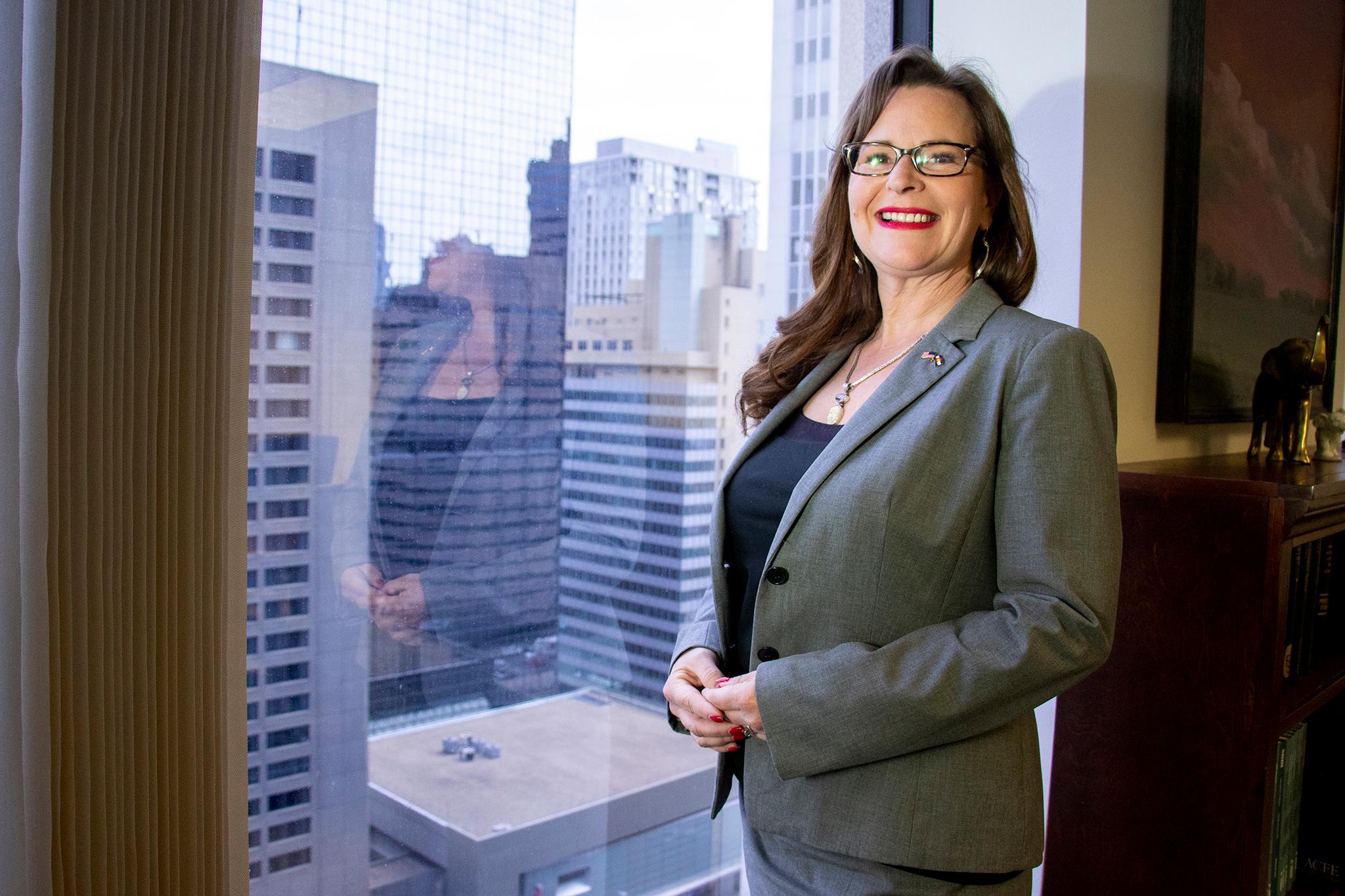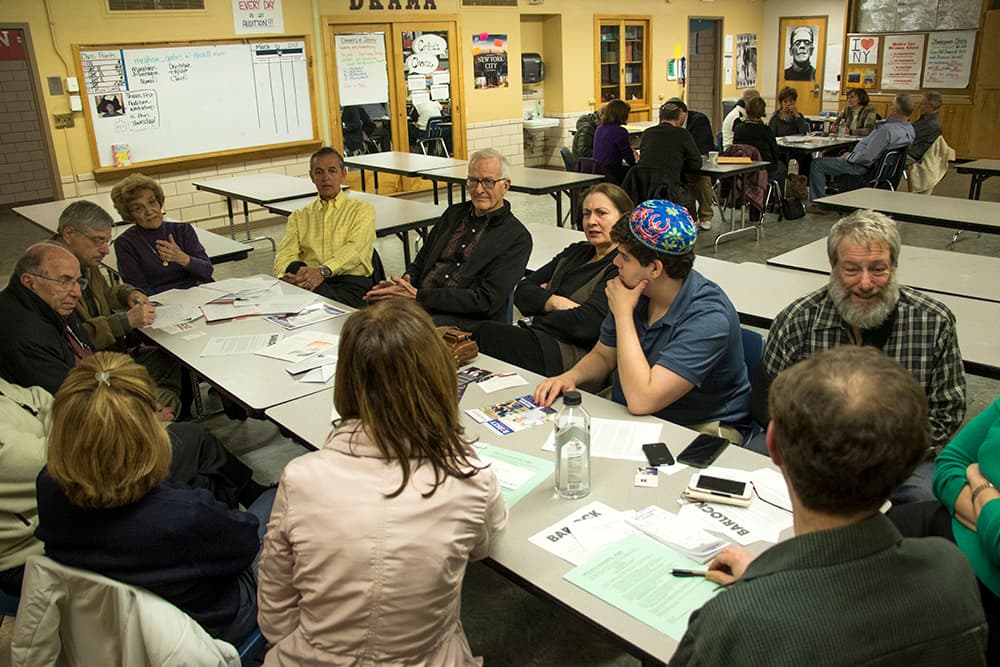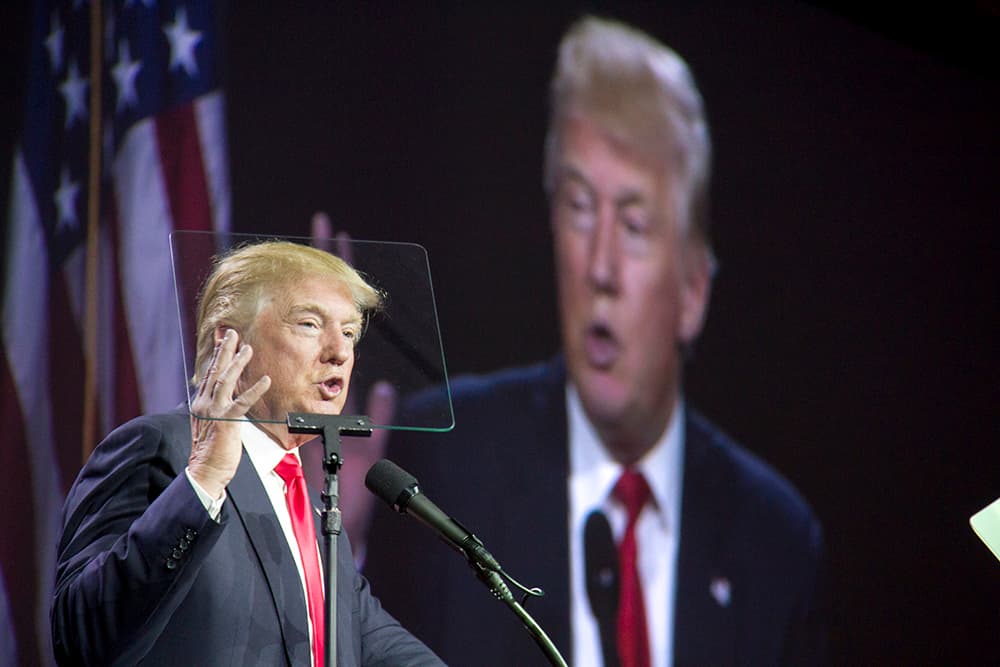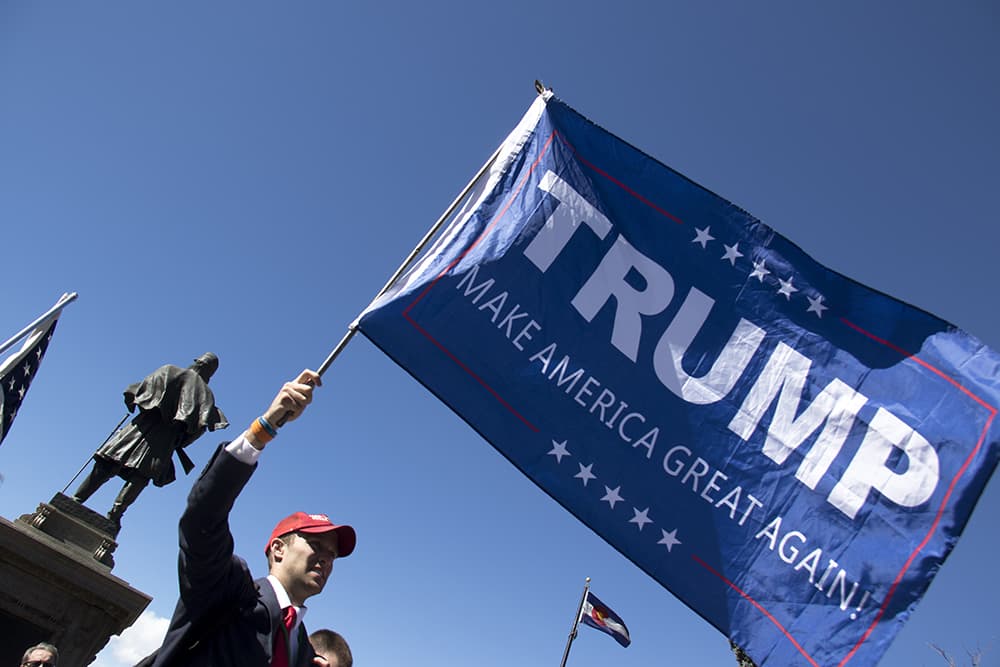The "blue wave" might have arrived in Denver long before the term was coined for 2018, but here's the thing: Denver is still home to Republican voters. Thousands of them, actually.
And while the numbers aren't great -- there are currently just over 52,000 registered active Republican voters out of more than 410,000 active voters in the city and county -- the Denver Republican Party's new chairwoman, Kristina Cook, is hoping for a "small but mighty" approach to ensure their voices are included in local discourse.
Cook, an accountant by trade and former radio personality, wants to provide avenues for the party members to come out of hiding. Cook was elected in February, replacing Jake Viano.
"So we've got an interesting challenge here," Cook said. "So much of it is how we handle ourselves and how we chose to engage, so I'm urging folks to become more involved. We've got the municipal race right now and it's been -- it's actually been very exciting."
Last month, the party co-hosted a Denver mayoral forum, which Cook said attracted some 250 attendees. It was an environment that allowed for differences in policy to be highlighted respectfully, Cook said.
"It's that kind of thing that we want to keep doing," Cook said. "Just having a voice in Denver politics."

She wants to make sure Republican input is part of the process, to ensure there isn't a single voice dictating all solutions. And that includes having Republicans "living their values" rather than just talking about them. And those values? Cook said they include limited government, fiscal responsibility and equal application of the law.
"We're under no illusions that we're going to get elected, at least not in this cycle, but we kind of know what we're up against," Cook added. "I think Republicans serve a really valuable function if we step up and do it, to provide that different perspective."
The party has formally come out against the Right to Survive Initiative, and Cook said the party is considering weighing in on the psilocybin initiative.
The party has at least one registered member running for a local race.
Though Denver's races are nonpartisan, Praj Kulkarni is a registered Republican running for City Council. He attended a Denver Republican's breakfast last month, along with council candidate Jonathan Woodley, who said he's unaffiliated and considers himself an independent.
Kulkarni, who's running for the open District 1 seat in northwest Denver, said his party affiliation rarely comes up during discussions about his run. He considers himself a reform conservative.
"A lot of people get really caught up in those national issues and I want to solve local, Denver issues," Kulkarni said this week. He cited development, transportation and crime among his top priorities.

His decisions are aimed at helping the middle class and, more specifically, he said his experience as a foster parent means many of his policy decisions will be rooted in what's he thinks is best for working-class families.
"When I think about the policies I'm going to support now, they are literally the first people I have in mind," Kulkarni said.
Garrett Flicker, 23, secretary for Denver Republicans, currently works as a legislative aide for state Rep. Tim Geitner of Falcon. Flicker calls himself a "log cabin Republican" a reference the Republican LGBTQ organization.
"I'm a gay, Jewish Republican," Flicker said. "There aren't many of us."
He's trying to move the party's image away from being a bunch of "creepy old dudes" that are "owned by a bunch of large companies."
So what happens when President Donald Trump comes up in conversation?
Polls suggest Trump's approval rating has dropped in Colorado since he took office. And it seems like he's mostly disliked in Denver, at least if you measure by voter turnout (he won one precinct here during the 2016 election) and vandalism of one of his local offices that same year.
The key to approaching people and teaching them more about the party is to start talking to them "as human beings," Flicker said.
"If you come out swinging with your politics, immediately, people are going to look at you like a fool," Flicker said. Instead, he suggests working your way into the conversation by learning more about their political beliefs before he reveals his own.
Cook said the party doesn't "lead with Trump."
"The Republican Party is more than the President," Cook said. "He is not the face of the party, necessarily. He's the leader of our party and I support him and I support the things he has done and I think they're beneficial to Denverites and Americans everywhere."

Flicker remains optimistic about the party's future in Denver. He pointed out that, considering there are currently no Republican elected officials representing Denver, the only way to go is up. He suggested there will be the backlash to the "overreach" by Democrats in the General Assembly that could turn the tide in Republicans' favor.
He has some personal goals tied to his party's success. He wants to run for the state legislature in 2020 to represent House District 37, which is currently represented by Democratic state Rep. Tom Sullivan of Centennial. Sullivan flipped the seat from red to blue last year.
Flicker said he was encouraged to serve for the local party in part because of his youth. He said, locally, the GOP is trying to reach out to communities not usually associated with the party, including LGBTQ and African American voters and "inner city people that want gun rights."
"You sit down and start talking to these people and you find out that they have a lot in common," Flicker said.
Cook said the party is ready to do some things people don't expect out of Republicans. But she knows she'll run up to interference and people who aren't interested in giving them a shot at being part of a larger political conversation.
"Just step back and watch us," Cook said, smiling.














